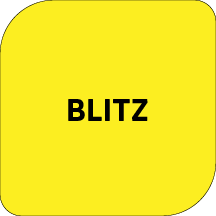ESCALATION
The game that makes it worse.
Context
Master's Thesis (MFA in Products of Design)
Project advisor: Allan Chochinov
Escalation is a family board game designed around a vision of the winner being the last person standing (because everyone else got so angry that they left the room.) However, I scaled that vision back a bit in order to make a game that people might actually play. The rules and actions are derived from a list of variables that make people frustrated, particularly in the context of politics.



To figure out what Escalation might look like, I began brainstorming with a couple of friends. We asked ourselves, “What escalates political conversations and situations? What makes things go badly?”
These items became the yellow "action tiles" for the game.
HOW TO PLAY


PLAY TESTING
A couple of rounds of play-testing revealed that the game is quite playable... and that the action tiles are actually aggravating. Even though I created them and was expecting them, I still found myself frustrated by the name-calling and thinking that my partner was being unfair.
Escalation still has a few nuances and kinks to work out (When precisely do turns start and end? How does Blitz work? How many rounds should players play in order to definitively win? How mean is too mean?) but I'm excited to keep workshopping it. Maybe I'll play it with my relatives at Thanksgiving, and just see what happens...


LEARNINGS
Many people I with whom I spoke about Escalation really wanted it to have a positive purpose. They would ask: “But then it brings families together to talk about their anger, right?”
In its current incarnation, it does not. It was designed as an evil game, and that is what it is. Play-testing it confirmed its ability to get people rather riled up and frustrated with each other. The Name-Calling tile, in particular, proved to be surprisingly infuriating. At the same time, it’s actually pretty fun to play.
However, as a thought experiment, Escalation did enable me to explore these forces that push people to the edge and how we might use the edge to help players learn and grow. In team-building, we often devise activities that we know will frustrate and challenge groups. By getting groups to confront real issues through arbitrary activities, facilitators can help groups better prepare for the real situations in which these issues might arise.